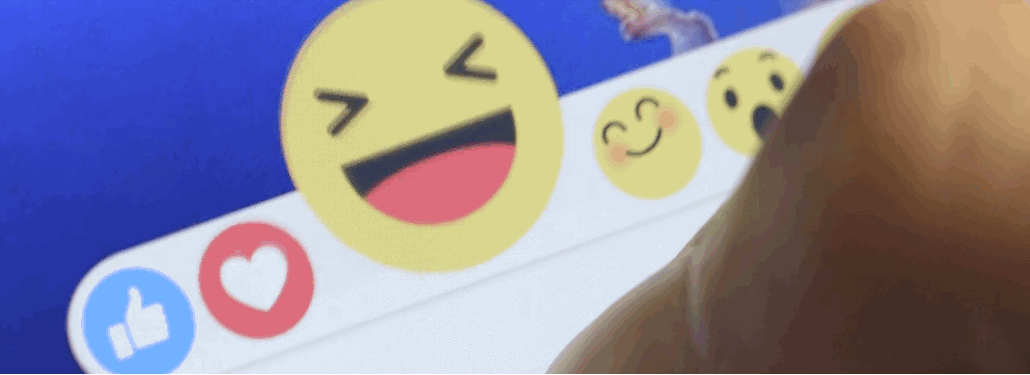Last chance to save on Digiday Publishing Summit passes is February 9
Facebook lets users (and brands) express sadness and love in revamped ‘like’ button

Facebook users can now express themselves beyond a dinky like.
As promised in October, Facebook is rolling out today its new expressions to everyone. Reactions, as it’s technically titled, comes as a suite of faces expressing a range of emotions including laughter, amazement, sadness, anger and love. That’s all in addition to the “like” button, which remains albeit with a slight redesign.
Facebook said the change was inspired by its users, who have been calling for a “dislike” button for posts where liking something feels weird, like the announcement of a death or a the conscious uncoupling of a celebrity couple. By reacting with the new faces, users send Facebook data on what they like, ultimately affecting what you see in your News Feed, Facebook said, in an attempt “to do a better job of showing everyone the stories they most want to see.”
For brands, Shannon Truax, head of social media at iCrossing, told Digiday that the buttons let people express themselves more visually and creatively. “This is a win for consumers, which means it has great potential for Facebook as a marketing and advertising vehicle for brands looking to tap into people’s passions,” she said.
Still, for now the buttons look like a random sampling of emotions. Facebook says it deeply researched its most frequently used stickers and one-word comments to figure out which faces should be included. Turns out, the love-themed stickers were the most popular, with humor, sadness and shock also being heavily used, according to Wired. (A “yay” expression was nixed because testers were confused by it.)
Chevrolet is one of the first brands to jump on the opportunity, debuting an ad of momentous events usually celebrated on Facebook — like marriage or pregnancy. Buying a new car, say a 2016 Malibu, is a reason to click that new “love” emotion.
Feels like a “groan” expression would go nicely here.
More in Media

Brands invest in creators for reach as celebs fill the Big Game spots
The Super Bowl is no longer just about day-of posts or prime-time commercials, but the expanding creator ecosystem surrounding it.

WTF is the IAB’s AI Accountability for Publishers Act (and what happens next)?
The IAB introduced a draft bill to make AI companies pay for scraping publishers’ content. Here’s how it’ll differ from copyright law, and what comes next.

Media Briefing: A solid Q4 gives publishers breathing room as they build revenue beyond search
Q4 gave publishers a win — but as ad dollars return, AI-driven discovery shifts mean growth in 2026 will hinge on relevance, not reach.





